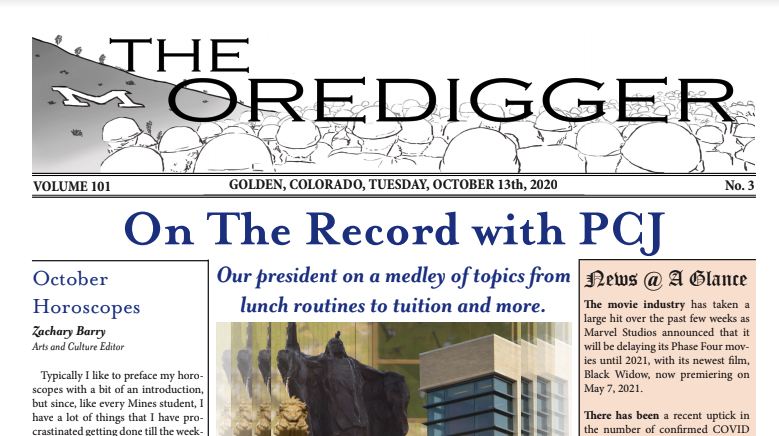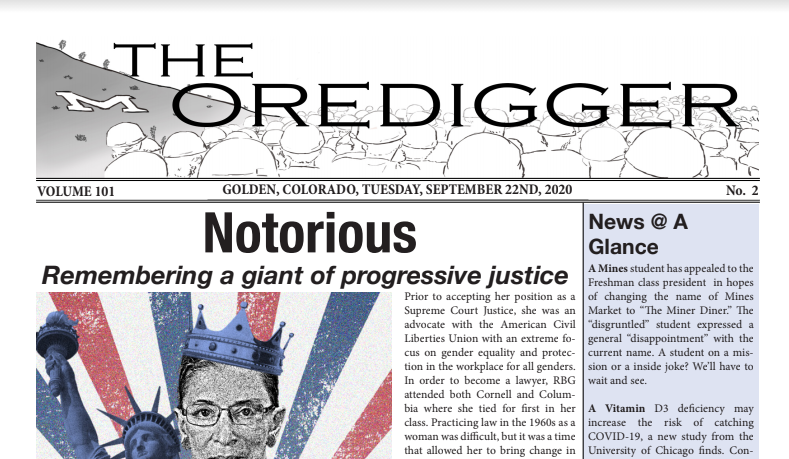Typically, at Mines, the word “research” conjures up images of professors and grad students toiling over experiments in some obscure basement. This week’s Research Spotlight flies in the face of these expectations with Dr. Knecht’s Team Dynamics research. While this may seem uncomfortably out of character for Mines, it is a critical component of what makes a good engineer.
The fundamental question of Team Dynamics, according to Dr. Knecht, is, “What are the functions or attributes that provoke problem solving? That’s something” he added, “that does not magically happen; you have to build the team. A lot of stuff is out there on other kinds of teams.” However, there is a problem with the research out there. Knecht noted, “I don’t want to sound pompous, but engineering teams are different,” a statement backed up by years of EPICS records.
One of the key differences cited by Knecht is women. According to Knecht, “Most literature says that you can’t put [just one] woman on a team.” It was found that EPICS teams tended to better with mixed teams and, contrary to popular belief, that the ‘undesirable’ presence of one woman (as opposed to none or several) was far from a handicap. In fact, Knecht observed that, “Extraverts tend to do particularly well in this position [only woman on the team] and often become leaders.” These observations were compiled from EPICS department records. On its own, that correlation is interesting enough, but it is the explanation that gets to the of core team dynamics. According to Knecht, “women approach problem solving differently and this helps the team.” This difference, particularly in communications, provides the team with diversity where there otherwise might not be any.
The obvious follow-up question is, “Why does diversity matter?” The answer lies in the identity of the team. In a diverse atmosphere, teams tend to be more likely to develop a strong team identity. Knecht noticed that the added diversity tends to lead to a “give and take environment.” One of Knecht’s more important observations is that the type of communication changes with the introduction of one or more women into an engineering team. Communications tends to become more positive and less aggressive. The result is that the women and the diversity they bring to teams serve as a catalyst for some of the more important exchanges in team dynamics.
So why does a little talk matter? According to Dr. Knecht, “It isn’t just how they document – you have to document for the client, you have to write for non-technical clients. It’s how [the team] communicates internally.” Teams that have the added diversity and more cooperative communications are better able to talk about and recognize their own strengths and weaknesses. This introspective look at the team is often what is required for the team to forge a strong team identity. Teams that make it to this point were significantly more likely to succeed.
The internal interactions in a team that has bonded this way are significantly different. These teams are less aggressive and more collaborative in their communications. Energy that would have been wasted on aggression can be put into completing the project and team members are less likely to become alienated. Knecht highlighted by asking, “Where do contentious communications help? Look at the government right now.”
So, what does this mean for you, besides an indication of your chances of a good experience and grade in EPICS? “Companies,” Knecht notes, “have recently begun to recognize this because more are seeing the value of collaborative effort.” With the prospect of improving the productivity of some of their expensive engineering teams, you can bet that some companies are going to start experimenting with things. If the performance of the EPICS teams here at Mines are any indication, we are going to start seeing more mixed teams in the future.”



'Dr. Knecht researches the importance of team dynamics' has no comments
Be the first to comment this post!